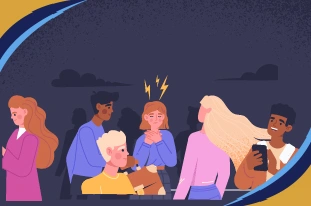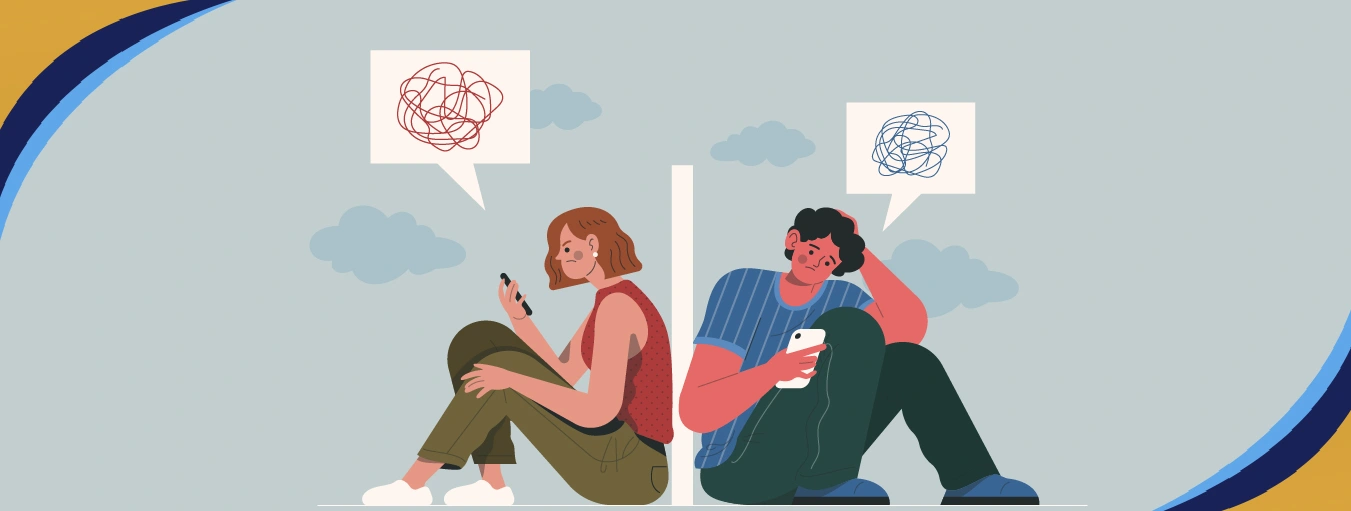Happiness is something that people desire in life. This is the moment of joy that is within the inner state of a person. The degree of happiness varies from one person to another. Some feel happiness in helping others, and some find it in another way.
However, the typical explanation of happiness is a feeling and emotional state that characterizes the joy, satisfaction, contentment, and fulfillment in life. At times, happiness overwhelms us, and at other times, it unfolds slowly. So, what is true happiness, and how does it feel to be happy again?
“Happiness is not something ready-made. It comes from your own actions.”— Dalai Lama XIV
Life presents moments of joy, challenge, and, sometimes, a period where happiness feels distant.
If you are in such a time, it is important to understand that rediscovering happiness is certainly possible. It is a journey, and you can take meaningful steps to illuminate your path forward.
When people talk about happiness, they may explain it as the present moment. In a general sense, they may have answered how they feel about life overall.
As happiness is a broadly defined term, psychologists and other social scientists explain it as an emotional state of a person. They usually use the term” subjective well-being of happiness”.
Read More: The Positive Impact of Mental Health Awareness Color
Happiness is different from pleasure. It is something dependent on struggle, endurance, and accomplishments in life that a person dreams of achieving.

Can You Really “Be Happy Again”? Understanding the Possibility
Life unfolds through a spectrum of experiences. Some moments shine brightly with joy and contentment, and there are moments when the way feels shadowed, and happiness seems like a distant memory.
If you are recently directing a period where joy feels elusive, know that you are not alone. Most importantly, rediscovering happiness is certainly within your reach.
It is completely natural to question if happiness can be regained once it feels lost! The answer is yes! While circumstances and internal states of life can certainly contribute to happiness, there are moments that shatter life, and darkness prevails. But yes, happiness is achievable because it comes with struggle, achievements, and success. While circumstances and internal states can certainly affect happiness, the human capacity for resilience, growth, and finding joy is profound.
Read More: Behavioral Health VS Mental Health: What is the Difference?
Think of happiness not as a fixed destination but rather as a state you can cultivate and return to. It comes and goes. Research in psychology demonstrates that while genetics and situations play a role, a major portion of our happiness is influenced by our deliberate actions and the way we approach life. This provides a huge amount of power and energy; you can actively work towards increasing your happiness.
Dr. Ed Diener has conducted extensive research on subjective well-being. He concluded that your relationships and engagement in meaningful activities are powerful drivers of happiness. His work, along with others, provides a strong scientific foundation for the idea that happiness is something you can nurture.
Eudaimonia, Beyond Just Feeling Good
When we talk about how to feel happy again, it is helpful to consider different layers of what” happiness” can mean.
Modern psychology often refers to subjective well-being, which includes feeling positive emotions and being satisfied with life. However, philosophers have explored a deeper form of flourishing for centuries.
The ancient Greek Philosopher Aristotle presented Eudaimonia. This theory is usually explained as living well, “human flourishing,” or “a well-lived life. It is not just about experiencing fleeting pleasure or positive feelings. Instead, Eudaimonia is achieved by living in harmony with virtue. This type of happiness is achieved by doing virtuous things. At the same time, it is about fulfilling your potential and engaging in activities that are naturally worthwhile and meaningful. It is a state of being that arises from worthy actions and rational activity over a complete life.
While feeling good is certainly a part of a happy life, your focus on Eudaimonia encourages you to look beyond temporary emotional states towards building a life rich in meaning, purpose, and virtue. While seeking how to get happy again, you strive for fleeting positive feelings, and for this deeper sense of flourishing that comes from living a life united with your values and potential.
Read More: Does Weather Affect ADHD? A Complete Guide For Your Questions
How To Find Happiness Again Is Through Acknowledging Your Feelings
The very first thing you need to learn to make yourself happy again begins with understanding your current state. When looking to be happy again, the recognition of feeling without judgment is important. Try to suppress and ignore other negative feelings like sadness, frustration, grief, and emptiness. Although these are all valid human emotions, when a person ignores them, they become more powerful in the long run.
Meanwhile, it is necessary to practice self-compassion during this time. Understanding and experiencing that difficult emotion is a normal part of the human experience.
Making yourself happy again comes when giving yourself the same kindness and gentleness you would give to a friend who is stressed.
Dr. Kristin Neff provides powerful work on self-compassion for cultivating this inner partner. She emphasizes three components: self-kindness, common humanity (recognizing suffering is universal), and mindfulness.
Read More: A Guide To Understand Smiling Depression
Neurological Dimensions Of Happiness
You might have noticed that the dimensions of happiness vary depending on the person. That means each relies on different things, providing information about their own subjective sense of satisfaction that gives them happiness.
But is there a more correct way to measure the sources of happiness?
Yes, the philosophers and psychologists have turned to neuroscience to reasonably understand the phenomenon that brings happiness, and what it looks like in the brain.
The research has given answers with the help of technologies to measure the electrical activity in the brain to determine how happiness manifests clinically. These technologies are PET (Positron Emission Tomography), fMRI (functional Magnetic Resonance Imaging) scans, and EEG (electroencephalogram).
These suggest how neurotransmitters like dopamine and serotonin play into our daily life experiences. These are more closely related to our levers of happiness.
Read More: Everything about Acute Stress Reaction
Taking Care Of Yourself Is Also Connected To Happiness
Your mind and body are associated with each other. If you neglect your physical health, it can drastically impact your emotional well-being. Consequently, the base or core of happiness consists of paying careful attention to your body.
Sleep:
Taking a healthy and uninterrupted sleep is non-negotiable. Sleep deprivation can exacerbate negative moods and reduce your capacity to fight stress. People should have a consistent sleep pattern and care for a relaxing bedtime routine, if they want to know how to find happiness again. You can support your mind by giving your body a need for rest. Medical research shows the link between sleep disorders and mood disorders.
Nutrition And Diet:
Nutrition and a healthy diet, like wholesome food, provide the essential fuel your body needs to function optimally and support stable moods. You can add foods to your diet that are rich in minerals, fruits, vegetables, lean proteins, and whole grains. Depending on processed foods and extreme sugar intake can lead to energy crashes and mood swings. You can choose foods that enhance your feelings and bring happiness.
Exercise:
Consistent physical motion is a powerful mood enhancer. Exercise helps the body to release endorphins, which have natural mood-lifting effects. It also helps to reduce stress and anxiety, helping you to answer “how to make myself happy again”. Activities like dancing, swimming, gardening, and walking can bring happiness. Even little or short-term activity can make a noteworthy difference in your mood. You can include exercise in your life that energizes and motivates you. The Journal of Consulting and Clinical Psychology published a study that establishes the usefulness of exercise in treating depression.
Everyone possesses the inner resources and capacity to find their way back to happiness. This track is deeply personal, and by taking intentional steps, practicing self-compassion, and connecting with what matters most, you can rediscover the light within you and live a life filled with more joy, meaning, and Eudaimonia.
Read More: There’s Something About Disruptive Mood Dysregulation Disorder That You Should Know (DMDD)
Orange Coast Psychiatry focuses on the mental well-being of every individual. We strive to find ways to help individuals, communities, and societies improve positive emotions and reach greater happiness.
























